Punjab is home to several esteemed colleges offering agricultural studies, emphasizing modern farming techniques, sustainability, and research innovation. These institutions provide comprehensive programs in various agricultural disciplines, including agronomy, horticulture, and animal sciences. With experienced faculty, state-of-the-art facilities, and strong industry connections, students are well-prepared for careers in agriculture. The emphasis on practical training and research further enhances their educational experience. For those seeking quality education in this field, here are the 9 Best Ranked Colleges in Punjab for Agriculture that stand out for their academic excellence and commitment to advancing agricultural practices.
-
-
- GADVASU : 9 Best Ranked College in Punjab for Agriculture
- KCVAS : 9 Best Ranked College in Punjab for Agriculture
- ICAR : 9 Best Ranked College in Punjab for Agriculture
- LPU : 9 Best Ranked College in Punjab for Agriculture
- GKU : 9 Best Ranked College in Punjab for Agriculture
- PAU : 9 Best Ranked College in Punjab for Agriculture
- CU : 9 Best Ranked College in Punjab for Agriculture
- CUPB : 9 Best Ranked College in Punjab for Agriculture
- NIFAER : 9 Best Ranked College in Punjab for Agriculture
- Faq of 9 Best Ranked College in Punjab for Agriculture
-
GADVASU : 9 Best Ranked College in Punjab for Agriculture
Guru Angad Dev Veterinary and Animal Sciences University (GADVASU) in Ludhiana is a prestigious university, although its main focus is on veterinary sciences and animal husbandry, not agriculture in the traditional sense of growing crops.
Official Website:
https://www.gadvasu.in/
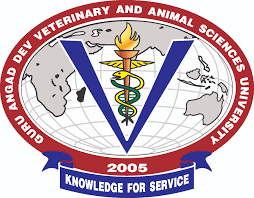

National Rankings
GADVASU is recognized as one of the leading institutions for veterinary and agricultural studies in India. It consistently ranks highly in national evaluations due to its academic excellence, research output, and impact on the agricultural sector.
- GADVASU’s Expertise: The university excels in programs related to animal health, breeding, and management. They offer programs like Bachelor of Veterinary Science and Animal Husbandry (B.V.Sc. & A.H.).
- Limited Agriculture Programs: GADVASU might not offer a dedicated undergraduate agriculture program (B.Sc. Agriculture) focused on crop production, soil science, etc.
However, GADVASU’s offerings might indirectly contribute to the agricultural sector:
- Animal Husbandry and Agriculture Link: Healthy livestock plays a vital role in agriculture, and GADVASU graduates can contribute to improved animal breeding, disease control, and overall farm productivity.
- Allied Fields: GADVASU might offer programs in allied fields like Dairy Science and Technology or Fisheries, which can be relevant to the agriculture sector.
KCVAS : 9 Best Ranked College in Punjab for Agriculture
A private college connected to Guru Nanak Dev University in Amritsar is the Khalsa College of Veterinary and Animal Sciences (KCVAS), Amritsar. It does not provide traditional crop-production-focused agricultural programs, but it is quite good at veterinary sciences and animal husbandry. Let’s take a deeper look:
.
Official Website: https://www.kcvas.com/
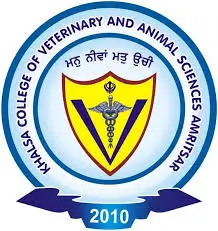

National Rankings
KCVAS has garnered recognition among top institutions in India for its agricultural programs. Various ranking agencies assess colleges based on criteria such as academic performance, faculty qualifications, research output, and placement success.
Focus on Veterinary Sciences:
- KCVAS primarily offers the Bachelor of Veterinary Science and Animal Husbandry (B.V.Sc. & A.H.) program, which equips graduates with the knowledge and skills to diagnose, treat, and prevent animal diseases.
- The program delves into various aspects of animal health, including anatomy, physiology, pharmacology, surgery, and animal husbandry practices.
- Focus on Animal Husbandry: While not directly agriculture, KCVAS graduates with expertise in animal healthcare can play a crucial role in improving livestock health and farm productivity, indirectly contributing to the agricultural sector
ICAR : 9 Best Ranked College in Punjab for Agriculture
The Central Institute for Cotton Research (CICR), Sirsa, is one of the greatest places to study cotton farming and associated subjects. Despite being located in Sirsa, Haryana, Punjab might gain from this significant cotton research facility as well. This is a detailed analysis of CICR:
Official Website: https://cicr.org.in/
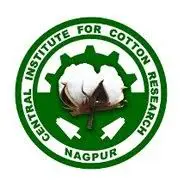

National Rankings
CICR is recognized as a leading institute in agricultural research, particularly in cotton. Various national and international ranking bodies evaluate its contributions based on research output, impact on the agricultural sector, and collaboration with universities and industry.
About CICR
- Established in 1947, CICR is the leading cotton research institute in India under the Indian Council of Agricultural Research (ICAR).
- The institute conducts basic and applied research on various aspects of cotton, including:
- Genetics and plant breeding for improved yield, fiber quality, and disease resistance.
- Agronomy practices for sustainable cotton production.
- Entomology and pest management.
- Physiology and pathology.
- Ginning and textile technology.
Educational Programs
- While CICR primarily focuses on research, it offers postgraduate programs (M.Sc. and Ph.D.) in cotton science for students interested in specializing in cotton research.
LPU :9 Best Ranked College in Punjab for Agriculture
Lovely Professional University (LPU), a recently founded, vibrant private university in Phagwara, Punjab, India, was founded in 2012. Despite being a relatively new college in comparison to some of the others on this list, LPU has quickly grown and acquired reputation in the Indian academic community.
For students looking for a comprehensive curriculum with an industry focus, LPU provides a wide choice of alternatives. With its cutting-edge facilities, emphasis on technology, and active campus life, LPU can be a great option for students looking for a well-rounded university experience. Always remember to carry out independent study and evaluate LPU in comparison to other universities to choose which is the greatest fit for your academic goals.
Official Website:
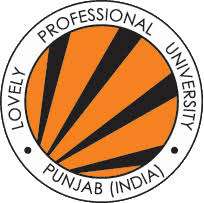

National Rankings
LPU is recognized among the leading institutions in India for agricultural studies. Various national ranking bodies assess universities based on academic quality, research output, faculty qualifications, and student placement success.
- Key Program Features:
- Duration: Typically 4 years (8 semesters)
- Structure: The program provides a strong foundation in core agricultural sciences like agronomy, soil science, plant breeding, plant pathology, entomology, and agricultural economics.
- Specializations (subject to availability, always check the website): LPU goes beyond traditional agriculture by offering specializations that cater to contemporary trends, potentially including:
- Agricultural Business Management: This equips you with business acumen to manage agricultural enterprises and navigate the agri-business landscape.
- Food Technology: This specialization delves into food processing, preservation, and value addition, preparing you for careers in the food industry.
- Hons. Advantage: The honors program might involve additional coursework, research projects, or industry internships, potentially providing a deeper understanding of your chosen specialization.
- Industry Orientation: LPU emphasizes practical learning through collaborations with agricultural companies, potential guest lectures from industry professionals, and internship opportunities (details on the website). This can bridge the gap between theory and real-world agricultural practices.
GKU : 9 Best Ranked College in Punjab for Agriculture
A private institution called Guru Kashi institution (GKU) is situated in Talwandi Sabo, Bathinda, Punjab, India. The University Grants Commission (UGC) recognizes it, and it was founded by the Balaji Education Trust in 2011. Numerous undergraduate, graduate, and doctorate programs in a range of subjects are available at GKU.
Official Website: https://www.gndu.ac.in/


National Rankings
GKU is gaining recognition in India for its agricultural programs. Various national ranking agencies evaluate the university based on academic excellence, faculty qualifications, infrastructure, and student success in placements.
- Undergraduate Programs:
- Bachelor of Science (B.Sc.) in Agriculture (Hons.)
- Duration: 4 years
- Eligibility: 10+2 with at least 50% marks in PCB/PCBM/PCM or 10+2 Agriculture with at least 45% marks.
- Curriculum: The program covers a wide range of topics in agriculture, including:
- Agronomy
- Soil Science
- Plant Breeding and Genetics
- Plant Pathology
- Entomology
- Agricultural Economics
- Horticulture
- Extension Education
- Specializations: GKU offers a variety of specializations within the B.Sc. (Hons.) Agriculture program, including:
- Crop Science
- Horticulture
- Agricultural Extension
- Agricultural Engineering
- Diploma in Agriculture Science
- Duration: 1 year
- Eligibility: 10+2 with at least 40% marks in any stream.
- Curriculum: The Diploma in Agriculture Science program provides a basic foundation in agriculture, covering topics such as:
- Principles of Agronomy
- Soil Science
- Plant Breeding and Genetics
- Plant Protection
- Animal Husbandry
- Dairy Science
- Agricultural Economics
- Agricultural Extension
- Postgraduate Programs:
- Master of Science (M.Sc.) in Agriculture
- Duration: 2 years
- Eligibility: B.Sc. (Hons.) in Agriculture with at least 50% marks.
- Specializations: GKU offers a variety of specializations within the M.Sc. Agriculture program, including:
- Agronomy
- Soil Science
- Plant Breeding and Genetics
- Plant Pathology
- Entomology
- Agricultural Economics
- Horticulture
- Extension Education
- Master of Science (M.Sc.) in Agricultural Engineering
- Duration: 2 years
- Eligibility: B.Tech. (Agricultural Engineering) or B.E. (Agricultural Engineering) with at least 50% marks.
- Curriculum: The M.Sc. Agricultural Engineering program covers topics such as:
- Soil and Water Conservation Engineering
- Farm Power and Machinery
- Post Harvest Technology
- Renewable Energy Sources
- Irrigation and Drainage Engineering
- Agricultural Structures and Environment
PAU : 9 Best Ranked College in Punjab for Agriculture
India’s top public agricultural universities is Punjab Agricultural University (PAU),located in Punjab. It was established in 1962 and is regarded as one of the top universities for teaching and research in the veterinary, agricultural, and related disciplines.
PAU can be an excellent option for your additional study if you have a strong interest in agriculture, related sciences, or veterinary sciences and wish to advance in these subjects. You can decide if PAU is the best university for you by carefully reading the official website and thinking about your academic objectives.


National Rankings
PAU consistently ranks among the top agricultural universities in India. Various national ranking agencies assess universities based on factors such as academic performance, research output, faculty expertise, and impact on the agricultural sector.
Here’s a glimpse into what PAU offers:
Academic Programs: PAU offers a wide range of undergraduate (B.Sc.), postgraduate (M.Sc.), and doctoral (Ph.D.) programs across various disciplines in agriculture and allied fields:
- Agriculture
- Agricultural Biotechnology
- Agronomy
- Animal Sciences
- Basic Sciences & Humanities
- Dairy Science
- Entomology
- Fisheries
- Food Science and Technology
- Home Science
- Horticulture
- Plant Breeding and Genetics
- Soil Sciences
- Veterinary Sciences
Chandigarh University : 9 Best Ranked College in Punjab for Agriculture
The B.Sc. (Hons.) Agriculture program at Chandigarh University (CU), which is situated in Mohali, Punjab, is a promising program that aims to give students the information and abilities they need to succeed in the contemporary agricultural environment.
Official Website: https://puchd.ac.in/
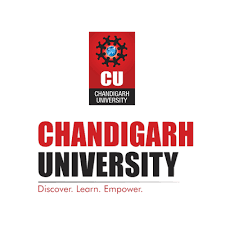

National Rankings
Chandigarh University is increasingly recognized among the top institutions for agricultural studies in India. Various ranking bodies assess the university based on factors such as academic quality, faculty qualifications, research output, and student placement success.
- Program Structure and Focus:
- Duration: Typically 4 years (8 semesters)
- Curriculum: The program provides a strong foundation in core agricultural sciences like agronomy, soil science, plant breeding and genetics, entomology, and agricultural economics.
- Emphasis on Innovation: CU goes beyond traditional agricultural practices by incorporating innovative aspects like:
- Precision Agriculture: Utilizing technology like drones and sensors for data-driven farming practices.
- Protected Cultivation: Techniques like greenhouses and vertical farming for efficient crop production.
- Sustainable Agriculture: Promoting environmentally friendly practices for long-term agricultural sustainability.
- Specializations (subject to availability): CU might offer specializations to cater to specific areas of interest within agriculture, potentially including:
- Plant Biotechnology: Harnessing the power of biotechnology for crop improvement and disease resistance.
- Agri-informatics: Leveraging information technology for data management, decision-making, and precision agriculture.
- Food Technology:** Delving into food processing, preservation, and value addition for a career in the food industry (details on specializations on the website).
- Hons. Advantage: The honors program might involve additional coursework, research projects, or industry internships, potentially providing a deeper understanding of your chosen specialization.
- Additional Highlights:
- Industry Orientation: CU emphasizes practical learning through collaborations with agricultural companies, potential guest lectures from industry professionals, and internship opportunities (details on the website). This can bridge the gap between theory and real-world agricultural practices.
- Experienced Faculty: CU boasts a team of qualified and experienced faculty members with expertise in various agricultural disciplines.
Central University of Punjab : 9 Best Ranked College in Punjab for Agriculture
Central institution of Punjab (CUPB), a 2009-founded central institution with its headquarters in Bathinda, Punjab, India. CUPB is a young, dynamic university that strives to provide excellent teaching and research opportunities across a range of academic disciplines.
If you’re searching for a dynamic learning atmosphere that prioritizes research, a comprehensive educational experience, and a variety of academic options, CUPB can be a great choice. To access the latest details about CUPB’s programs, admissions, and campus life, click on the above link to the official website. Remember to compare CUPB to other universities based on your academic goals and personal interests.
Official Website: https://cup.edu.in/
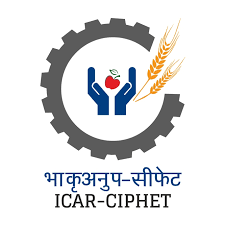

National Rankings
Central universities are increasingly recognized for their contributions to agricultural education and research. Various national ranking agencies evaluate these institutions based on several factors, including:
Here’s what we can speculate based on the university’s focus and current offerings:
- Focus on Emerging Technologies: CUPB emphasizes research and innovation. The agriculture program might integrate advanced technologies like precision agriculture, data analysis, and automation.
- Potential Specializations: Considering the university’s focus on applied sciences, the program might offer specializations in areas like:
- Agri-informatics: Combining agriculture with information technology for data-driven farming practices.
- Sustainable Agriculture: Emphasizing eco-friendly practices for long-term agricultural sustainability.
NIFAER 9 Best Ranked College in Punjab for Agriculture
The Indian Council of Agricultural Research (ICAR) founded the prestigious National Institute of Food Security and Agricultural Economics (NIFAER), Barnala, in 2009. With an emphasis on food security, agricultural economics, and rural development, it is crucial in determining agricultural policies and practices in India. Here’s a thorough explanation:
Official Website: https://disfm.iisfm.nic.in/
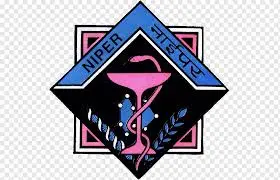

National Rankings
NIFAER is increasingly recognized for its specialized programs in agricultural economics and food security. Various national and international ranking agencies assess its performance based on academic quality, research output, faculty expertise, and impact on agricultural policies.
- Areas of Expertise:
- Agricultural Economics: NIFAER conducts research on various aspects of agricultural economics, including:
- Agricultural marketing and price analysis
- Farm management and production economics
- Agricultural policy analysis and impact assessment
- Trade and investment in agriculture
- Food security and rural development
- Policy Research: The institute actively contributes to policy formulation by providing research-based recommendations to the government on critical issues related to agriculture, food security, and rural development.
- Rural Development: NIFAER focuses on research and interventions to improve the livelihoods of rural communities.
- Educational Programs:
- Master’s Degrees: NIFAER offers Master of Science (M.Sc.) programs in various agricultural economics specializations, potentially including:
- Agricultural Economics
- Agribusiness Management
- Food Security and Rural Development
- Agricultural Marketing and Trade
- Doctoral Programs: The institute also offers Ph.D. programs in agricultural economics for students interested in pursuing advanced research careers.
Frequently Asked Questions
Yes, students are encouraged to engage in clubs, workshops, seminars, and competitions, enhancing their overall educational experience.






